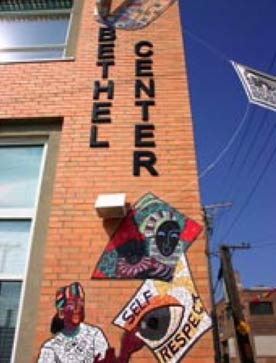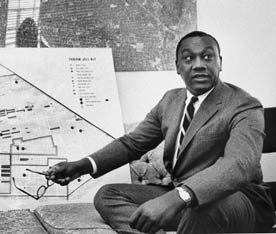The latest book by Bill McKibben, the well-known environmental journalist and activist, poses a provocative question for community economic developers: How do we improve the lives of the people in communities: By giving them tools to operate in a “mainstream” economy that often carelessly discards human communities or by helping to build a new locally-oriented economy that values community? McKibben has produced a 232-page manifesto for an alternative future where the good life is not about more goods but about more happiness. He believes that happiness is found in human community, not in increased consumption. Economic growth as an intrinsic virtue has been challenged before by social critics, but McKibben’s argument is more practical and immediate than most, marrying recent social-science research in economics, sociology, and psychology with the facts of resource depletion and climate change to make his case.
This is not so much a hymn to a pastoral past but a richly textured thesis in which McKibben contends that the current course of American society is dangerous environmentally (primarily because of climate change), unlikely to be sustainable (because of declining fossil-fuel resources), and failing to make us happier human beings. “From problem to plan. If hyper-individualism is damaging our lives,” McKibben asks, “What can we do about that?” In response, he offers a vision of how we can live differently and gives examples of those who already have made the paradigm shift toward community.
One of the most appealing aspects of this book is how McKibben has integrated the perspective of writer and essayist Wendell Berry in his vision of a future that is both urban and rural. The book is dedicated to Berry, who has been a personal lodestar for me. Berry’s essays, novels, and poetry constitute a lifelong effort to describe and argue for a way of life that respects both land and people and brings economic and human relationships into harmony. His wonderful book of essays, What Are People For, foreshadows McKibben. In Berry’s words “A good community, in other words, is a good local economy.”
Berry writes about his native Kentucky (where my own family’s roots are as well), but his focus on rural and small town life means that he does not speak directly to the challenges of urban community that most organizers and community developers face. McKibben, in contrast, does speak to urban activists with descriptions of how local systems of agriculture can sustain large urban communities and how the relationships nourished by a local economy in an urban neighborhood can be as rich and meaningful as the rural relationships that Berry describes.
McKibben begins with the question, “What is an economy for?” He concludes that it is to provide for human happiness, not to produce goods and services. The goods and services are a means to the end of human happiness. He then gives a brief overview of the work of a number of economists who have increasingly sought to measure human satisfaction and happiness rather than simply material well-being.
Beyond a threshold of material well-being (McKibben cites international research published in 2004 by Ed Diener and Martin Seligman that shows the threshold to be a $10,000 per-capita income), further increments of material goods do not make people happier, McKibben argues. He cites a variety of recent studies that all make the point that if material goods come at the expense of time, happiness is diminished even as material wellbeing is increased. His reporting ranges from his home in Vermont to the frontier of the new global economy in China where he interviews young workers who clearly have not achieved the material threshold of well-being that McKibben asserts but are already conflicted about the value of the material well-being that they are achieving.
The most interesting part of McKibben’s argument for those of us in the community economic development field is his case for the importance of local economies that keep people in communities in a productive relationship with each other. McKibben goes into detail about the movement for local food. He describes how farmers have connected to local buyers and built economically viable businesses. And he examines the ways in which the industrialized food system impedes the trend toward localism. For example, oats, which were grown in Vermont for two centuries, now aren’t grown there because of the lack of public-policy support for a diverse local agriculture and can’t be milled locally because of the disappearance of oat mills.
McKibben argues that the industrialized food system is unhealthy for consumers in part because the large-scale production of poultry and meat results in a reliance on antibiotics. The system relies on tremendous inputs of cheap fossil fuels, from fertilizers to the transport of food around the country and world. From the giant sewage lagoons created by concentrated animal feed operations to the nitrogen run-off from heavily fertilized fields into rivers and streams, it is destructive of communities and the environment both in the United States and around the world. And it produces unsafe conditions for many of the workers in the system worldwide.




Comments